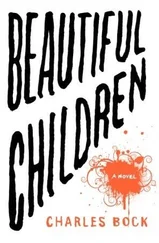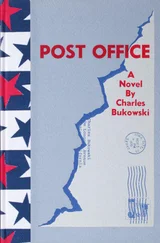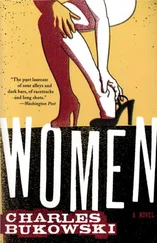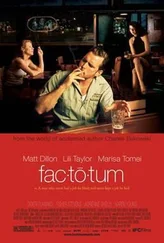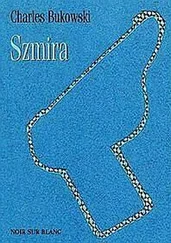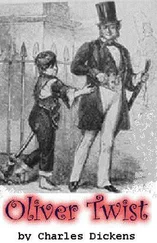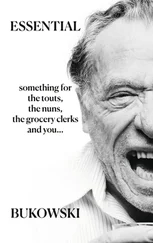At the ER they did the boy a favor and let him venture out of his little cordoned area long enough to watch, on an elevated television in the corner, a report about that day’s negotiations between the players’ union and the owners. Handing over the case files to the desk nurse, his mother double-checked to make sure the boy’s oncologist had been contacted. The boy’s father had answered the message from his service and called the hospital: “Still at the office, leaving now.” The boy’s mother felt as if she knew something she did not want to know. The television was at a commercial, the report was over; she wheeled her compliant child back into his exam area, where he promptly zoned out. She watched him sleep for a while and headed over to the vending machine for their shitty coffee, and had an awful sensation, a kind of déjà vu. It wasn’t so much that the boy’s mother remembered all the times during the first go-around when she’d gotten coffee at this shitty vending machine, but feeling all of her exhaustion and terror during those months, what it was like to not know what was going to happen. She was already seeing a therapist twice a week. Taking Zoloft to get through the day, Valium to get to sleep. The boy’s father had signed a lease on a small apartment two blocks from their home, a sign of his hopes for reconciliation, but also so he could be near in case of emergencies.
The next morning the oncologist performed a spinal tap. Grimly, he confirmed that the boy had come out of remission. The nurse-practitioner and the boy had become close as well — for his seventh birthday, she’d bought him a customized Yankees cap with a pinstriped brim. She teared up at the news. The large soft hands of the boy’s father acted as a mitt, encompassing the boy’s fingers. Mom rubbed his back. A course of action and treatment was laid out. Survival rates were reiterated. The boy listened with questioning eyes, seemed a bit shocked. He asked if any Yankees were going to visit the ward while he was there, or whether the baseball strike meant they weren’t doing any more visits.
The exam room had no windows and nothing to look at and nowhere to go. The doctor was talking about checking him back in to the ward, new rounds of chemo, looking for a donor. His dad was blinking and nodding, staring straight ahead. There wasn’t really any other direction, was there? You just had to strap up. He agreed to stay with his son. Later today he was going to take up smoking again. After he finished in midtown and got home to his empty, shitty little apartment, he usually had a beer or two. He told his son that whatever the ward offered they were going to milk the hell out of it. The mom gave him a look that conveyed unhappiness about the language he was using. She was about to head home to pack for a longer stay. (When she leaves the hospital, the mother will raise a hand in the air and flip off God, something she has not done since the last time the boy was ill.) Bring his Strat-O-Matic baseball set, the boy reminded her. He stressed the importance of the blue binder he used to keep the game summaries and statistics for his fantasy season. It should be on his desk but if not, under his bed. Sometimes during their afternoons together the boy and his dad played Strat-O-Matic and the boy made reference to one of their recent contests, in which he’d eked out an extra-inning victory. He asked if his mom could bring his lucky Air Jordans, the 3s.
Reinduction would start as soon as all the tests were done and his Hickman was back in. They’d start searching for a donor ASAP. The boy was pretty jazzed, actually, about being able to go back into the children’s ward. His room was brightly painted, the walls luminescent with glow-in-the-dark planets and rockets and shooting stars. The boy wondered if any of his friends were around. He looked at the laminated menu and bit down on his bottom lip and made a long farting sound. Then the boy saw pizza tacos. He said those were new.
The ward may not have been a Ronald McDonald House, where kids were having fantasy wishes granted left and right, but it still housed children with cancer, and it was in New York City. It got more than its share of celebrity visitors. Every week the community service outreach lady and the public relations people brought in someone. Wrestlers Owen and Bret Hart stopped by and put everyone in headlocks. Mark Messier spent an afternoon and got choked up more than once. The boy took all offered hats and T-shirts, had Messier sign a puck with a silver Sharpie. Baseball players commonly visited the ward, the community relations lady promised. Logic held that they needed all the good press they could get, especially seeing how the All-Star Game had just been flushed down the tube. They’d be coming. But the schedule worked out so no baseball player was visiting until the boy’s third week in the ward. Even then it was a member of the Mets, the deformed stepbrother of New York City baseball.
The boy turned away from the nurse, refused to get his temperature taken. His father raised his voice. Said this was unacceptable. Buddy. Come on now.
Dwight Gooden may not have been thirty years old, but he was a good half decade removed from the fireball-spewing heroics that had once captivated the city. Though his face was still smooth and bright, around the eyes there was some wear, some sorrow. Although he was known as Dr. K, it had been a while since Doc’s last winning season, and the tabloids had taken a special glee in chronicling his most recent string of problems: his suspension for cocaine use, his Nike billboard taken down in Times Square. Doc had untold reasons to bail on his visit. He really didn’t need to be there. He was wearing a collared cotton shirt that was open at the collar and had a thin band of gold around his neck. His smile was shy. When he spoke— Hey, man, how you doing? — it was low and quiet, just a few words. Hanging in there is pretty good, I think. He seemed friendly, but also reserved, as if a little embarrassed.
By then the boy was deep into reinduction. He’d lost all his hair. His pulse was weak. There had been complications. The easiest thing for him was to sleep. But he kept himself awake for this, asked Doc to sign his Yankees jersey.
EISENSTATT FLASHED THE pointer at her eyes, promised he’d be quick. He made a sound that intoned recognition. “Chemical conjunctivitis. It’s pretty much a standard side effect, especially in younger patients.”
Alice kept blinking, her expression pained. As soon as the device clicked off, she looked down. She worked to focus, concentrated on that middle floor square, its inner flecked pattern. A single fleck. Feeling more centered, she grabbed for her Versaces.
“Three days,” continued the doctor. “Admittedly that’s atypical for conjunctivitis.” Now Eisenstatt had the voice of a slightly vexed father. “And explain this again: why you didn’t call the urgent care center.”
The horrid hospital chill, the typical iced air of exam rooms. Once again Alice wrapped herself in the hospital blanket and shut her eyes — as if that would keep out the question.
“She didn’t want to have to go back into the hospital.” From his corner stool, Oliver blessedly bailed her out.
“Our goal is to get your wife to a transplant,” Eisenstatt said. “Not to keep her out of the hospital.” Speaking to Alice, he continued. “The marker for whether you call is very low.”
“It wasn’t getting worse,” she managed. “Over the phone they told me to come in if it got any worse—”
“It wasn’t getting any better, either.”
Do you remember that part? She and Oliver searched out each other, his tinted confusion matching how she felt. For not the first time, Alice thought of the doctor via the same name that her husband used: Dickenstein.
Читать дальше

